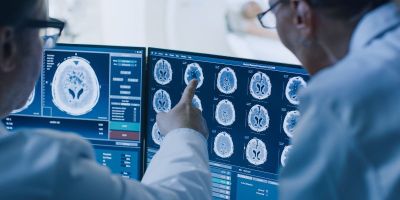Brain tumour researchers begin pioneering drug testing project

Researchers at the University of Leeds and the University of Hull are starting a new two-year project focusing on glioblastoma, the most common and deadly form of adult brain cancer.
Yorkshire’s Brain Tumour Charity has awarded Dr Lucy Stead a £5,897 grant to install pioneering tissue-on-chip technology at the University’s Leeds Institute of Medical Research.
Currently, cancer drugs are tested on glioblastoma cells grown in test tubes. This in-vitro model does not accurately replicate the natural tumour environment, making tests inaccurate. Almost 100% of glioblastomas recur between six to nine months after treatment, leading to a dire average survival rate of just 15 months following diagnosis. Understanding what allows these tumours to grow back is key to developing more effective treatments.
The new testing model, first developed by Dr Pedro Beltran-Alvarez at the University of Hull, places cells on state-of-the-art microfluidic chips, as opposed to in test tubes. The chips feed the cells with nutrients, keep the cells at body temperature and continuously remove waste products.
This more realistic ex-vivo model allows researchers to better predict how patients will respond to treatment. The researchers will use the model to test various drugs which inhibit molecules suspected to cause treatment resistance.
Dr Beltran-Alvarez will assist Dr Stead in establishing this model at the Leeds Institute of Medical Research. The model requires human tumour tissue, which will be provided by The Leeds Neuro Research Tissue Bank, a venture established in March 2020 and jointly funded by Yorkshire’s Brain Tumour Charity and Oscar’s Paediatric Brain Tumour Charity.
The brain is arguably the most complex organ in the human body, and understanding the ways that tumours develop, grow and respond to drugs in the brain requires that we model the tumour tissue as accurately as possible in the lab. This tissue-on-chip model will give us new insights and better information about brain tumours so we can learn how to more effectively kill them. The Universities of Leeds and Hull are working together to maximise our chances of success, and are hugely grateful to YBTC for enabling this to happen
Dr Beltran-Alvarez said: “The role of the YBTC in catalysing the creation of a new brain tumour research bridge between Leeds and Hull cannot be overstated. This collaboration, which was fostered and initially funded by YBTC, has included the exchange of cells, materials and reagents, the transfer of specialised know-how and co-supervision of research students. There are now strong ties and regular meetings between the two teams, which have resulted in joint grant applications and, most importantly, new research ideas with the ultimate aim of improving diagnosis, treatment and quality of life for patients with a brain tumour. The funding will enable the consolidation of knowledge transfer between Hull and Leeds and we are very grateful to the YBTC for their continued support.”
Marie Peacock, CEO of Yorkshire’s Brain Tumour Charity, said: “We are excited to be funding development of the technology at Leeds and hope that in time this will lead to a breakthrough in our understanding of how the cells survive and thrive so new treatments can be developed. Working across the two Yorkshire based universities in Hull and Leeds has been a pleasure and we hope to seek more ways to collaborate across the region to make a big impact on tackling brain tumours.”
Yorkshire’s Brain Tumour Charity is Yorkshire's leading brain tumour charity dedicated to raising funds for life changing research and patient support.




